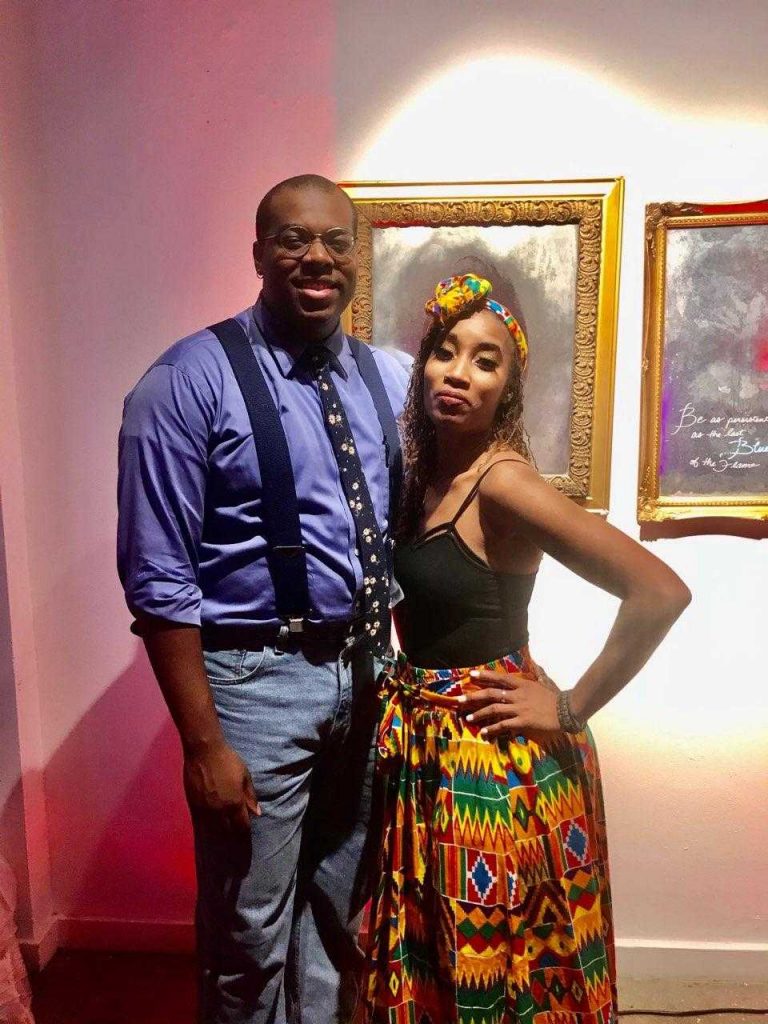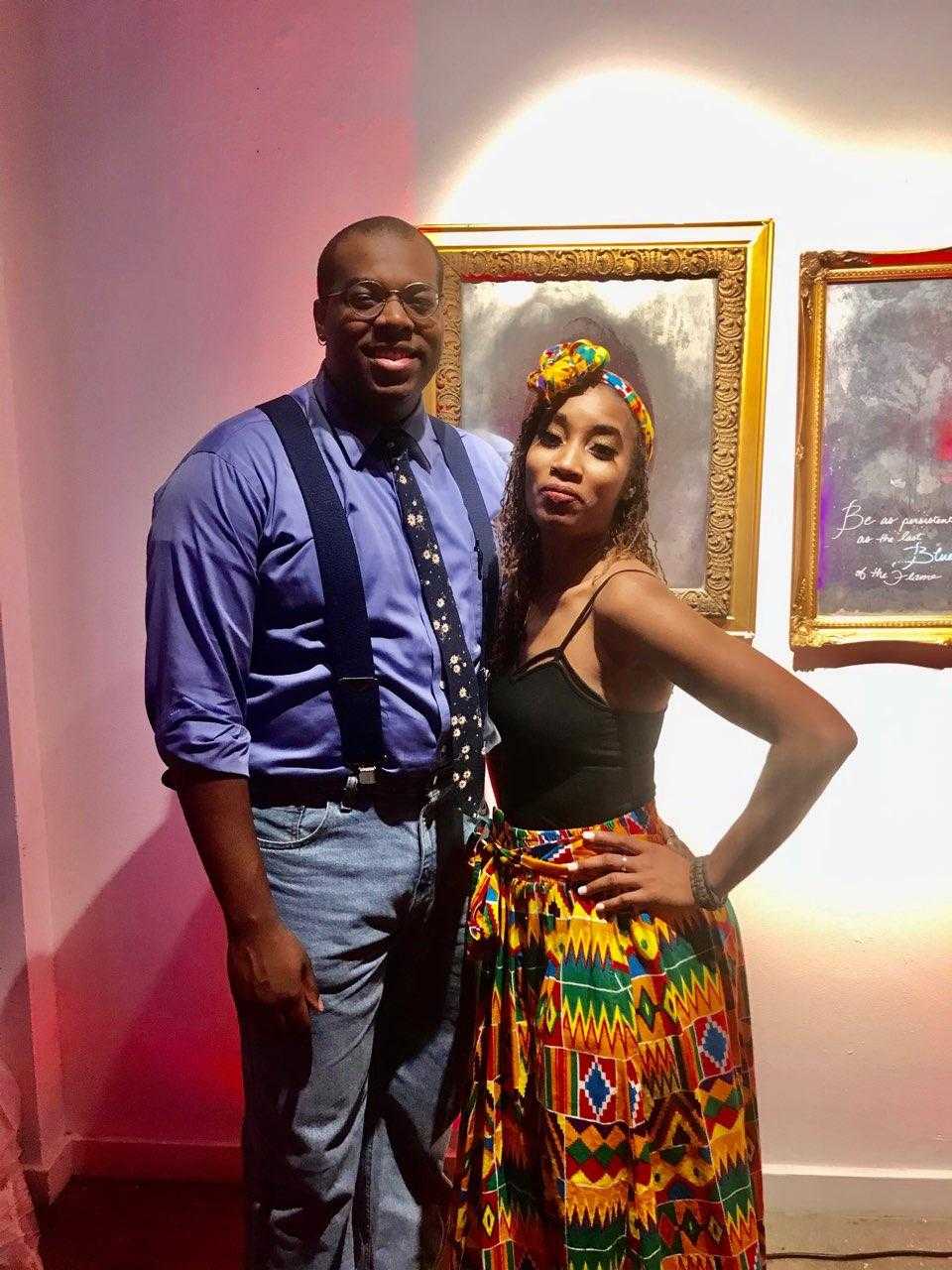
Courtesy of Studio@620
By Dylan Hart
What happens to a dream deferred?
For the poets at the Studio@620’s Black History Month Poetry Showcase, it comes out on stage.
Twelve local poets performed at the studio on Feb. 6, reading a mixture of original poetry and pieces from black poets throughout history. Maya Angelou and Langston Hughes were in no short supply, but the performers were willing to explore obscure and unknown black poetry as well.
The 12 poets were selected by curator and co-host Miesha Brundridge, who “picked and chose” them from the studio’s monthly poetry open mic.
The show opened with trumpet player Thaddeus Dziekonski playing classic jazz tunes, like Duke Ellington’s “Take the ‘A’ Train” and “It Don’t Mean a Thing (If It Ain’t Got That Swing),” both links to black history.
When performers stepped up to perform on the rug in front of the studio’s upright Steinway piano, with moody red lights beaming at them from the ceiling, they explored a number of common themes relating to what Black History Month means to them.
One common theme was American history, perhaps most clearly shown in Studio@620 founder and director Bob Devin Jones’ choice of poem in Langston Hughes’ “I, Too, Sing America,” read by poet Sharon Scott in his stead due to illness.
Scott was confident and unafraid to belt “America!” on the word’s frequent recurrence in the poem, which explored the duality of American pride and America’s dark past.
Also coming up in several poems was the theme of memories –– memories of people from long ago.
Poet Sarah Reese remembered a black musician named Emile Latimer, a guitarist who played with Nina Simone. She served him while she was a waiter in Buffalo, New York, and remembers that “everyone called him Papa Emile.”
His 2013 obituary in The Buffalo News calls him a “mentor to area musicians.” Reese remembered that Latimer and Simone, by coincidence, both wrote songs titled “Black Is the Color of My True Love’s Hair.” Reese read both.
Poet and USF St. Petersburg student Julia Linkogle also used memory to reflect on her late grandfather, linking him to black poet Yusef Komunyakaa. Both were Vietnam War veterans, and Komunyakaa’s poem “Camouflaging the Chimera” explores his experience there. Linkogle also wrote a new poem as a tribute to both.
The poets’ energy could be traced up and down, like a mountain range. Some poets belted loud notes and let their dresses sway as they danced. Others preferred to remain calm, letting only words and occasional hand gestures work instead.
Another recurring theme was childhood. Poet Alexandra Morgan, who Brundridge described as a “snowbird,” used the work of poet Nikki Giovanni to reflect on her own childhood.
Giovanni’s poem “Nikki-Rosa” explored how outsiders misunderstand poor black childhoods as horrible and difficult, even though the author was happy. Conversely, Morgan’s reflection on her own white childhood tackles how it was unhappy despite perceived wealth and social status.
Nearing the end of the show, house manager, co-host and poet Denzel Johnson-Green read an original poem titled “White Water Jutsu Hidden Technique,” an abstract piece comparing the ocean and how people interact, especially regarding race.
Beforehand, he spoke candidly to the crowd of about 40 attendees.
“I hope you learn and become more aware of black issues, but also how it spills into other types of issues for gay people and for different classes of people and for different abilities,” Johnson-Green said. “Don’t let it end here with black history.”



